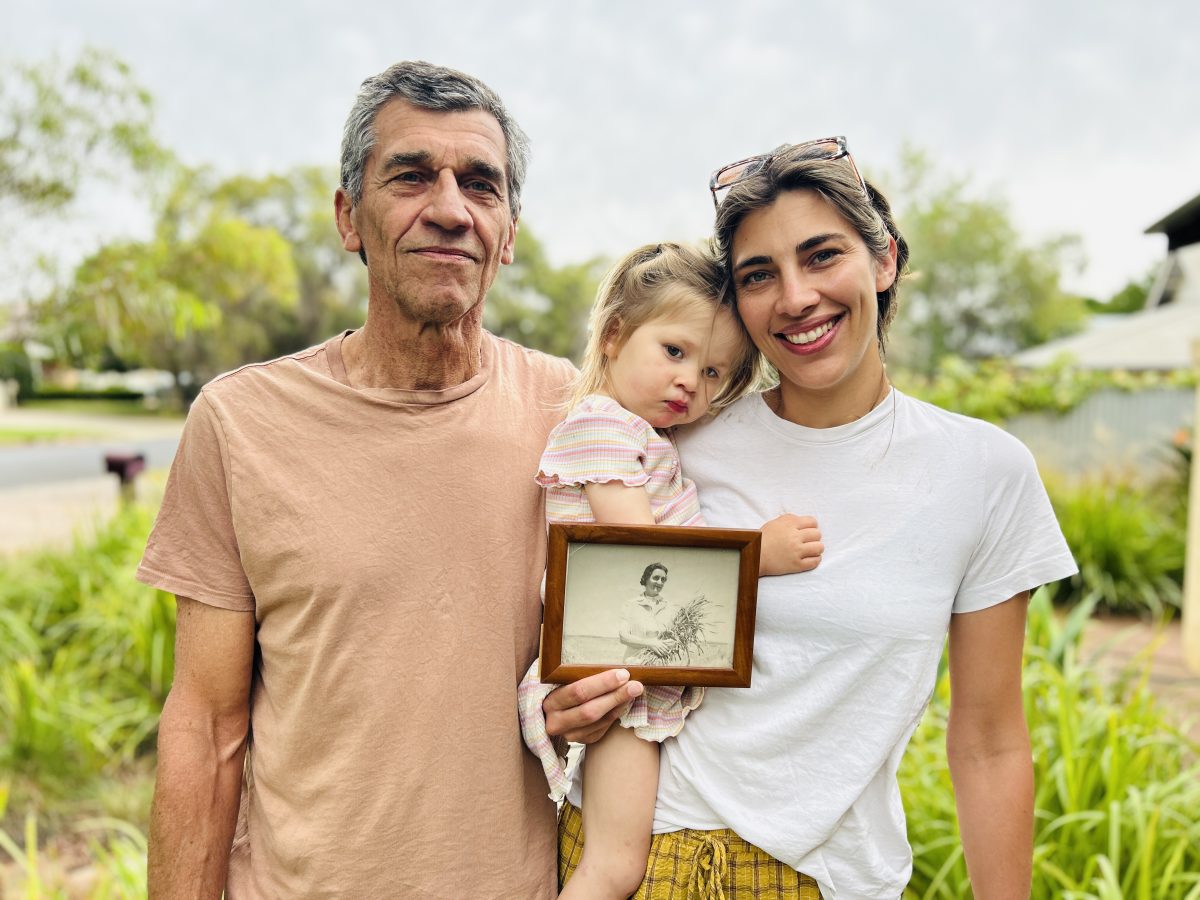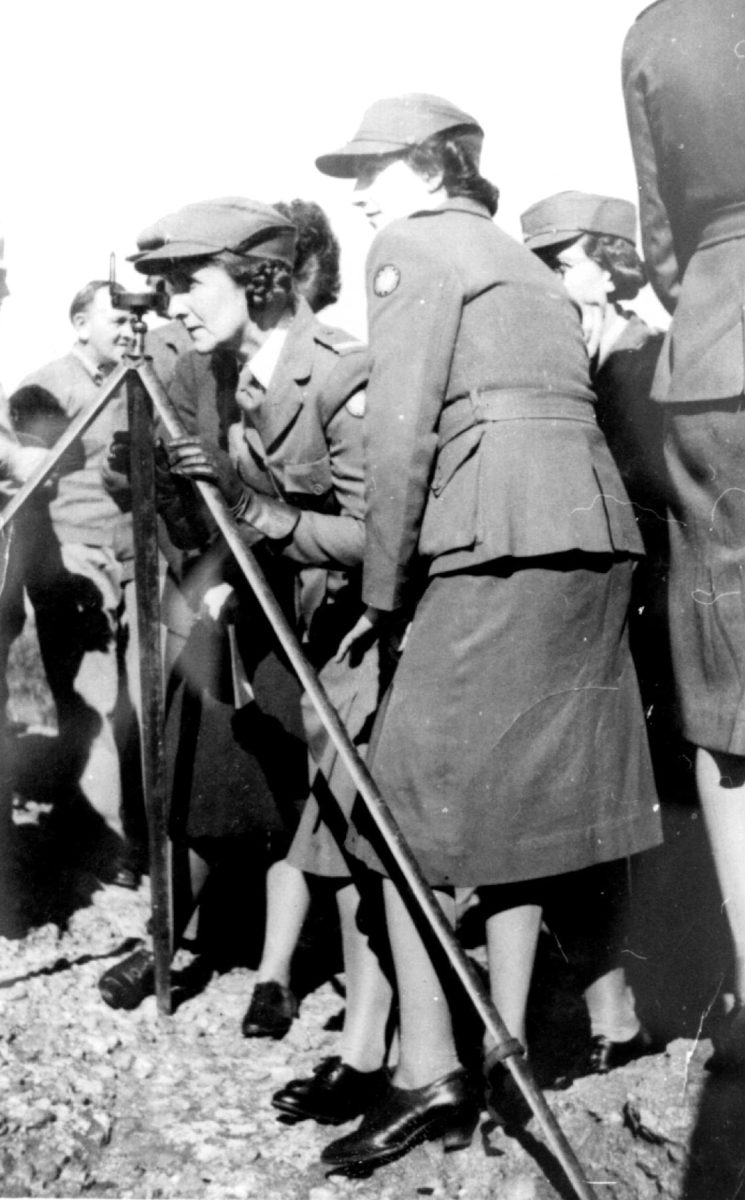
Three generations of Blumers — Grant, Ruby and Macy, with a photo of Nancy. Photo: Oliver Jacques.
In the 1920s, Griffith was a young, fast-growing agricultural town transforming semi-arid land into productive farmland through irrigation from Burrinjuck Dam.
But the area had a serious lack of cultural activities. This is, until Nancy Blumer arrived.
“She saw the need for art and music,” grandson Grant said.
“There wasn’t much going on in town and she wanted to figure out a way not to drive herself crazy. She was a bossy woman who could get things done; she loved bossing people around.”
At age 27, Nancy moved to Griffith in 1922 with her solicitor husband, Paul Wilfred, who co-founded the law firm Cater and Blumer.
“That was a time when a lot of people were moving from the city to the country. Many ended up in Griffith because there was so much work,” Grant said.
As an arts graduate from Sydney University, Nancy was one of the few tertiary-educated women in town and quickly became a leader. She formed the Girl Guide Association of Griffith, the Griffith Music Club and the Arts Council. The music club now has an annual award in her name, which is organised by her great-granddaughter, Ruby.
“One main characteristic of Mrs Blumer was her intense love of babies and children,” newspaper The Riverina Advocate wrote in her 1957 obituary.
“Pied-piper like, she attracted a crowd of children wherever she went. She arranged picnics for them, took them on jaunts to the river and the hills and all the time she educated them to an appreciation of another great love of her life – nature.”

Nancy (left) was a leader in the Land Army. Photo: Supplied.
Nancy also developed a rapport with the local Aboriginal community and those less fortunate than herself, giving them food and clothes and offering them a place to sleep in her own home.
Grandson Grant was born just after she died, but learned about her through his father, Gary.
“My grandparents bought an old Ford as soon as they arrived here. Paul would walk to work. You’d often see Nancy driving around with two or three Koori kids and her arm outside the window exercising the horses.”
During World War II, both of Nancy’s sons were enlisted to fight overseas. That’s when she joined the Land Army.
“With 500 girls under her control, Mrs Blumer supervised billeting arrangements, allocations to farms and recreational facilities,” The Riverina Advocate wrote.
“Her infectious good humour, practical commonsense and shrewd intelligence stood her in good stead for her exhausting role as liaison officer between the girls and the farmers.”
After the war, she continued to develop the town’s art and music scene, organising concerts, operas and exhibitions in town until her death in 1957.
Eight years later, Nancy had a fountain built in her honour on Banna Avenue and she was posthumously bestowed the Community Citizen of the Century Award in 2000.
“Because of her devotion … Griffith now enjoys a reputation among towns in NSW for providing one of the most appreciative audiences for good cultural entertainment,” The Riverina Advocate wrote.
Grant described her as a force of nature.
“Her main aim was to leave the world a better place than when she entered it, and that’s what she did.”














